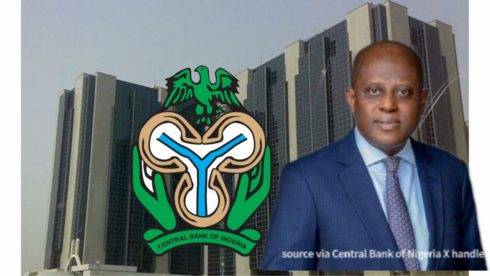In a bid to fortify the resilience of Nigeria’s banking sector amidst prevailing macroeconomic challenges, the Central Bank of Nigeria (CBN) has declared an increase in the minimum capital requirements for commercial, merchant, and non-interest banks. The move, as elucidated by Haruna Mustafa, director of the financial policy and regulation department, aims to bolster the banks’ solvency and capacity to bolster the nation’s economy amidst external and domestic shocks.
Under this revision, the CBN has adjusted the capital base for various categories of banks. Commercial banks holding international licenses are now mandated to maintain a minimum capital of N500 billion, while national and regional financial institutions are required to maintain capital bases of N200 billion and N50 billion, respectively. Moreover, the minimum capital requirement for national license holders of merchant banks has been increased to N50 billion. Additionally, the capital base for national and regional non-interest banks has been raised to N20 billion and N10 billion, respectively.
To ensure compliance, the CBN has suggested several strategies for banks, including the injection of fresh equity capital through private placements, rights issues, or offers for subscription. Furthermore, the option of merger and acquisition (M&A), as well as license upgrade or downgrade, has been presented as viable alternatives for banks to meet the new capital requirements.
Implementation and Regulatory Framework
Existing banks are mandated to meet the new minimum capital requirements within a stipulated timeframe of 24 months, commencing from April 1, 2024, and ending on March 31, 2026. The minimum capital requirement specified by the CBN shall consist solely of paid-up capital and share premium, excluding additional tier 1 (AT1) capital. Banks failing to comply with the minimum capital adequacy ratio (CAR) requirement applicable to their license authorization will be required to inject fresh capital to rectify their position.
For prospective banks, the new minimum capital requirement will be strictly applicable to all new applications for banking licenses submitted after April 1, 2024. However, the CBN assures continued processing of pending applications for banking licenses for which capital deposits have been made or approval-in-principle (AIP) has been granted. Nonetheless, promoters of such proposed banks must bridge the gap between the capital deposited with the CBN and the new capital requirement by March 31.
Nigerian Banks Gear Up for Capital Raise Amidst CBN’s Policy Shift
In the wake of the Central Bank of Nigeria’s (CBN) announcement to increase the capital base of banks in the country, executives of Deposit Money Banks (DMBs) are actively exploring strategies to bolster their institutions’ financial standings. This move comes as top officials engage in preliminary discussions regarding potential mergers and acquisitions aimed at raising fresh capital.
The initiative to fortify the capital base of Nigerian banks was unveiled by Cardoso during the 58th Annual Bankers’ Dinner organized by the Chartered Institute of Bankers of Nigeria in November 2023. Cardoso, representing the apex bank, outlined plans to embark on a new round of banking recapitalization, aligning with Nigeria’s ambition to achieve a $1 trillion economy by 2026. Speaking at the event, he emphasized the necessity of enhancing the financial sector’s capacity to support the nation’s economic aspirations.
Cardoso highlighted the resilience exhibited by Nigeria’s financial sector in 2023 amidst global and local economic challenges. Stress tests conducted on the banking industry revealed its robustness under varying economic conditions. However, he underscored the imperative of fortifying the sector further to tackle future uncertainties. With President Bola Ahmed Tinubu’s economic agenda targeting a substantial GDP growth, the adequacy of the banking industry’s capital to sustain such expansion came under scrutiny. Cardoso emphasized the need for proactive measures, indicating that the current stability of Nigerian banks might not suffice to support a $1 trillion economy without concerted action.
Implications and Strategic Responses
The proposed increase in capital requirements by the CBN signals a paradigm shift in the Nigerian banking landscape, prompting DMBs to reassess their financial strategies. Executives are evaluating options ranging from organic growth to strategic alliances through mergers and acquisitions to meet the forthcoming regulatory standards. Such initiatives not only aim to enhance individual bank resilience but also contribute to the overall stability and competitiveness of the banking sector.
Moreover, the capital raise initiative presents opportunities for consolidation within the banking industry, potentially leading to a more streamlined and efficient financial ecosystem. By pooling resources and expertise, banks can better navigate evolving market dynamics and mitigate systemic risks. However, the success of these endeavors hinges on effective collaboration, regulatory compliance, and prudent risk management practices.
As Nigerian banks embark on this transformative journey, stakeholders anticipate a period of transition characterized by strategic realignment and operational restructuring. The outcomes of these efforts will not only shape the future landscape of the banking sector but also play a pivotal role in Nigeria’s quest for economic prosperity and financial inclusivity.
Table of Contents
Discover more from OGM News NG
Subscribe to get the latest posts sent to your email.














